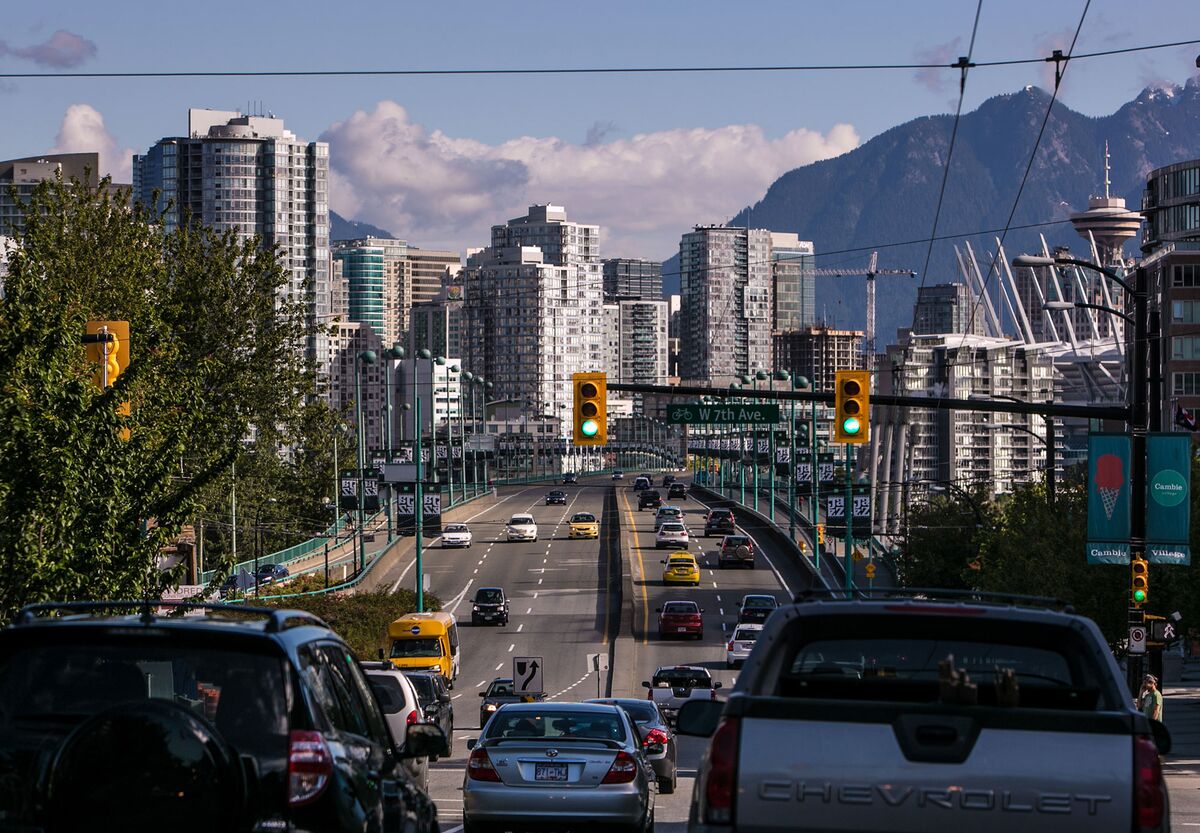
The aftermath of a dramatic election threatens political upheaval in British Columbia, the Canadian province that’s been driving the fastest-growing Group of Seven economy. A change in leadership could upend multi-billion-dollar energy projects, rattle sentiment in Canada’s most inflated housing market and complicate Prime Minister Justin Trudeau’s fraught trade relations with the U. What made the election so dramatic?
The result of provincial voting on May 9 was about as close as it gets. Of the legislature’s 87 seats, 43 were won by the ruling center-right Liberal Party, 41 by the left-leaning New Democratic Party and a record three by the Green Party. Since no party has the required 44 seats to pass bills on its own, British Columbia will have its first minority government in 65 years. Who’s in charge?
That question is testing political convention and constitutional law. Christy Clark, the Liberal Party leader who has served as premier since 2011, has refused so far to resign. Also, no party wants to lose a member to become Speaker, without which nothing can happen in the Victoria legislature. How will this stalemate end?
The New Democrats and Greens struck an alliance and are set to oust Clark in a so-called confidence vote expected in June. The ouster will pave the way for NDP leader John Horgan, a 57-year-old former pulp mill worker, to form a government propped up by the Greens. Under their agreement, the parties pledge to pass budgets and maintain an NDP-led government until the next scheduled election in four years. They’ve also agreed to push ahead on about a dozen common causes, including electoral reform and public transit. Little beyond that is predictable. The Greens ruled out forming a coalition and plan to vote independently on most issues. Clark says she will stay on as leader of the opposition. Why is British Columbia so important?
As home to Canada’s biggest port and its gateway to Asia, British Columbia is crucial to getting energy exports to new markets and drove Canada’s recovery from collapsed oil and commodity prices. In 2016, it created jobs faster than any other province and, for the second straight year, was first in economic growth, which clocked in at 3. Yet there are jitters that its economic performance has been skewed by the Vancouver real estate market, which topped a list of global cities most at risk of a housing bubble in a list compiled by UBS Group AG in September. A big driver of economic expansion last year was a 17 percent jump in residential home construction. What will the new political alliance mean?
On a number of pressing issues, the New Democrats and Greens split from the Liberal Party that’s been in charge for the past 16 years. Expect changes in liquefied natural gas (LNG) projects, housing policy and the fate of a proposed pipeline that seeks to turn Canada into a major oil exporter to energy-hungry Asian nations. Which pipeline might be affected?
The NDP-Green alliance vows to “employ every tool available to the new government" to stop the controversial C$7.5 billion) plan to triple the capacity of Kinder Morgan Inc.’s Trans Mountain pipeline, running more than 965 kilometers (600 miles) from near Edmonton, Alberta, to a terminal in Burnaby, near the Vancouver port. The expanded pipeline would open up new Asian markets for crude from Alberta, almost all of which is now sold to the U. The expansion was approved by Trudeau, who says the shift in provincial government shouldn’t affect its fate. Though the province doesn’t have a direct role in approving the line, there may be ways to thwart it by imposing new conditions or stalling the issuance of road and construction permits. Aboriginal and environmental groups, meanwhile, have launched more than a dozen legal challenges to stop it. What might be the impact on LNG?
Clark has supported more than 20 liquefied natural gas export terminals proposed for the Pacific Coast. The projects won’t get the same backing from the new alliance. Green Party leader Andrew Weaver has mocked the Liberal-backed development of an LNG industry as "nonsense" and a "colossal failure" that offers "unicorns in all our backyards." While the New Democrats haven’t ruled out LNG projects, Horgan has joined the chorus of critics of Petroliam Nasional Bhd’s proposed $27 billion terminal near Prince Rupert on B.’s northwest coast, which has been delayed by regulatory reviews and strident environmental opposition. Horgan said during the campaign that the Malaysian state-run company’s project is "poorly sited," and he pledged to “find a better place and a better way” for it to be built. How might trade policy be different?
Clark pledged to ban U. miners like Cloud Peak Energy Inc. from shipping thermal coal through B. ports, in retaliation for U. duties on Canadian softwood lumber, the province’s biggest export commodity. Horgan called such retaliation "irresponsible" during the campaign but has also backed "hardball" negotiations with U. President Donald Trump. He’s vowed that, if elected premier, he’ll get on a plane to Washington within 30 days to defend Canadian lumber. Meanwhile, the Greens’ Weaver staunchly supports the proposed ban on coal shipments. How might housing policy be changed?
The New Democrats and Greens agree on taking action to deal with the “speculation and fraud” that is driving up Vancouver home prices, the highest in Canada. In its election platform, the NDP sought a 2 percent “speculator’s tax.” In Vancouver, the cost of a typical detached house has surged to C$1.83 million, ormore than 20 times median household income. has led Canada in economic growth and job creation, there are indications that it’s been inordinately fueledby real estate and household debt. Clark has already imposed a 15 percent tax on foreign buyers. More measures to cool the market seem likely.
The Reference Shelf.


0 comments:
Post a Comment